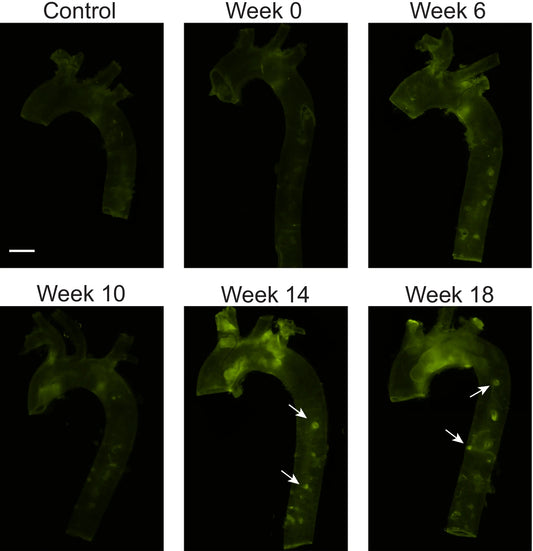First Empirical Evidence of Collagen Damage during Bone Fracture
Bone is a remarkable material, strong enough to withstand impressive forces without fracturing. Despite decades of research, however, our understanding of the molecular mechanisms underlying bone’s fracture resistance has remained incomplete. It has long been hypothesized that collagen degradation occurs following bone fracture. Until recently, this hypothesis lacked empirical evidence due to a...
View Details
Skeletal muscle fibrosis is associated with decreased muscle inflammation and weakness in patients with chronic kidney disease
Chronic kidney disease (CKD) progressively impairs kidney function, affecting millions. Beyond kidney-related complications, patients often experience muscle weakness and reduced mobility, begging the question: does muscle fibrosis contribute to those limitations? Figure 1 demonstrates a significant increase in collagen deposition within the vastus lateralis muscle of CKD patients. Histochemical analysis using picro-sirius red...
View Details
Advancing Intervertebral Disc Degeneration Assessment with Collagen Hybridizing peptides: A Fast, Accurate Approach for Research and Clinical Applications
Intervertebral disc (IVD) degeneration is a significant contributor to lower back pain, a leading cause of disability in individuals over 45. IVD is marked by the degradation of collagen and the extracellular matrix, which triggers inflammatory responses, recruits macrophages, and accelerates degeneration. Monitoring the progression of IVD degeneration and assessing the effectiveness...
View Details
Collagen Hybridizing Peptides Conjugated to Water-Soluble Copolymers for Targeting Intratibial Osteosarcoma
Discover innovative strategies for treating osteosarcoma (OS) with localized drug delivery using Collagen Hybridizing Peptides (CHPs). OS, a malignant bone cancer, often requires surgery and chemotherapy, but these treatments are plagued by systemic side effects. This research highlights the potential of CHPs to selectively target tumors by binding to damaged collagen in bone tissue.
View Details
Detecting Early Arterial Damage in Atherosclerosis: How Collagen Hybridizing Peptides Overcome Diagnostic Challenges
Atherosclerosis, characterized by the buildup of plaque inside human arteries, is one of the leading causes of cardiovascular diseases. The disease is brought on by a complex interplay between lipids, inflammatory cells, and the ECM. Arterial blood flow is restricted as plaques form, which can rupture to cause blockage. Arterial blockage, or occlusion, is...
View Details
Uncovering Fibrosis: Superior Sensitivity of CHPs in Targeting IPF
Discover how collagen hybridizing peptides (CHPs) outperform Masson's trichrome in detecting collagen in idiopathic pulmonary fibrosis (IPF) tissues.
View Details
Revolutionizing Cardiovascular Disease Diagnosis: How Collagen Hybridizing Peptides Unveil Hidden Arterial Damage
Discover how Collagen Hybridizing Peptides (CHPs) transform the diagnosis and treatment of cardiovascular diseases by accurately identifying and targeting damaged arterial collagen. Learn about this innovative technology and its impact on improving patient outcomes.
View Details













